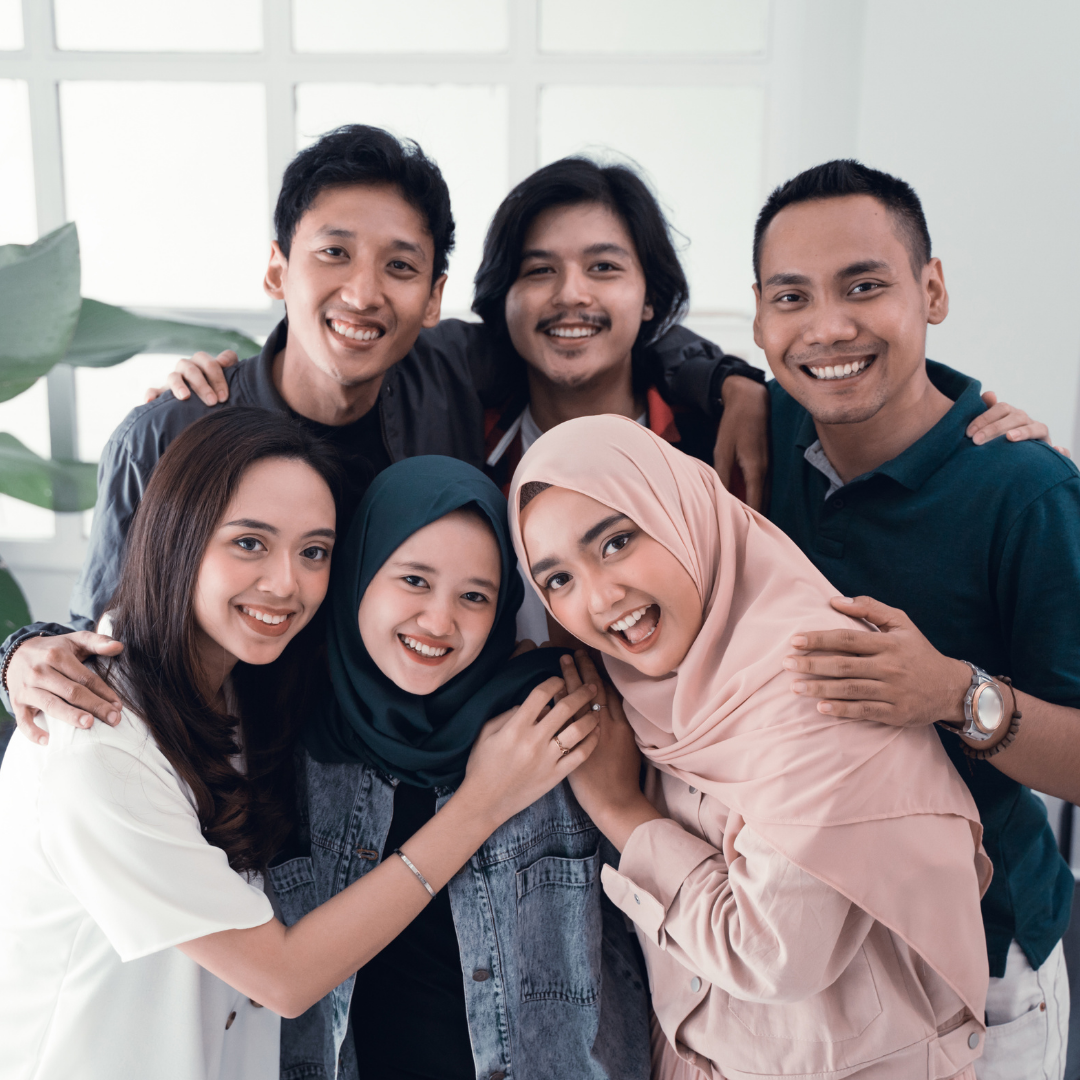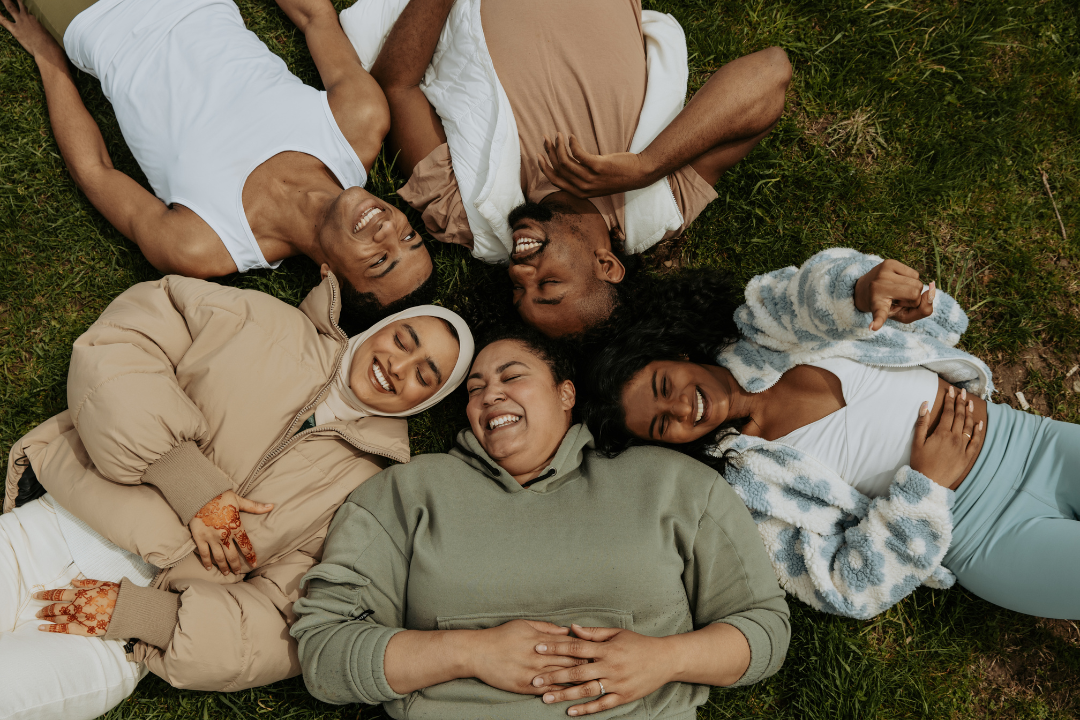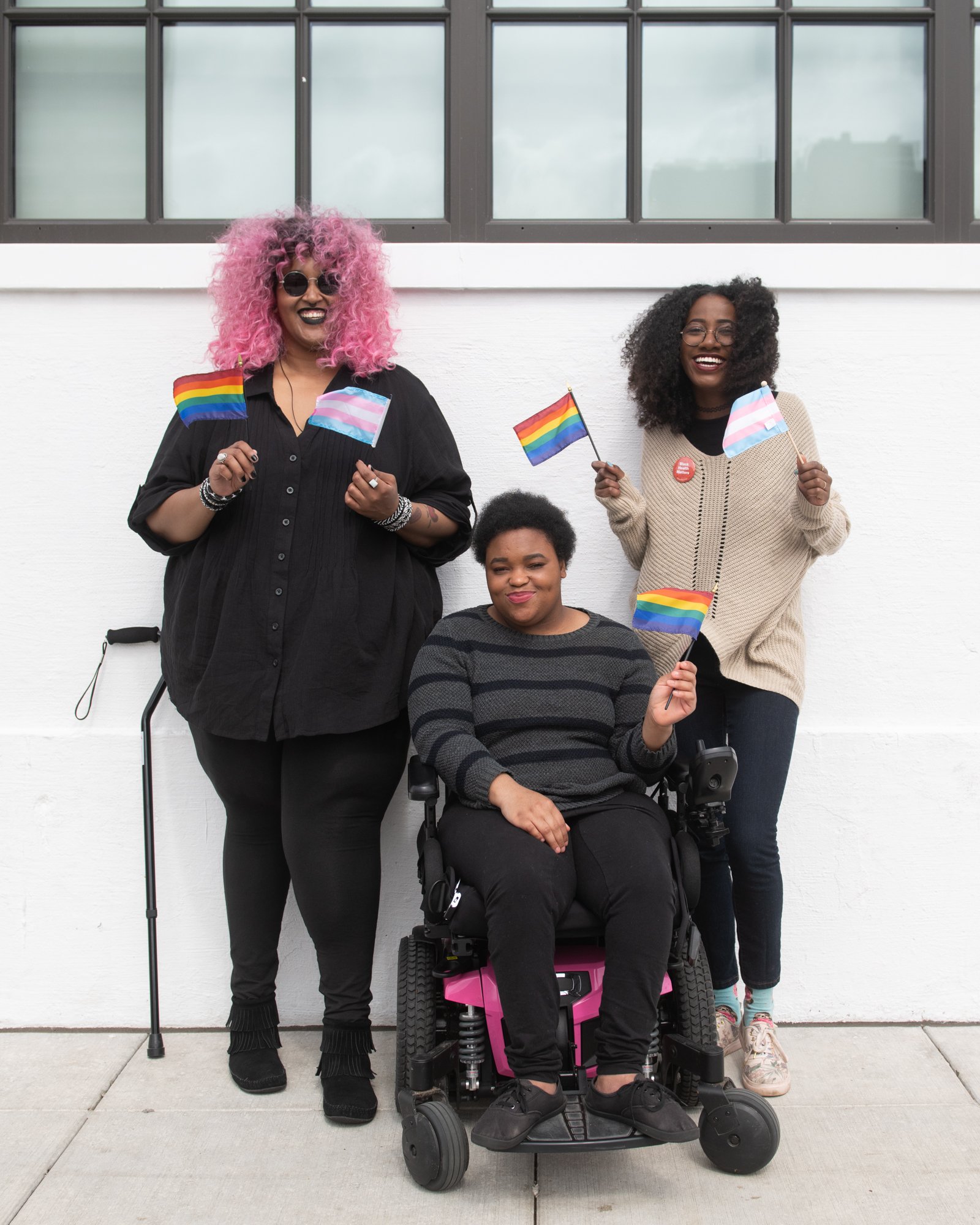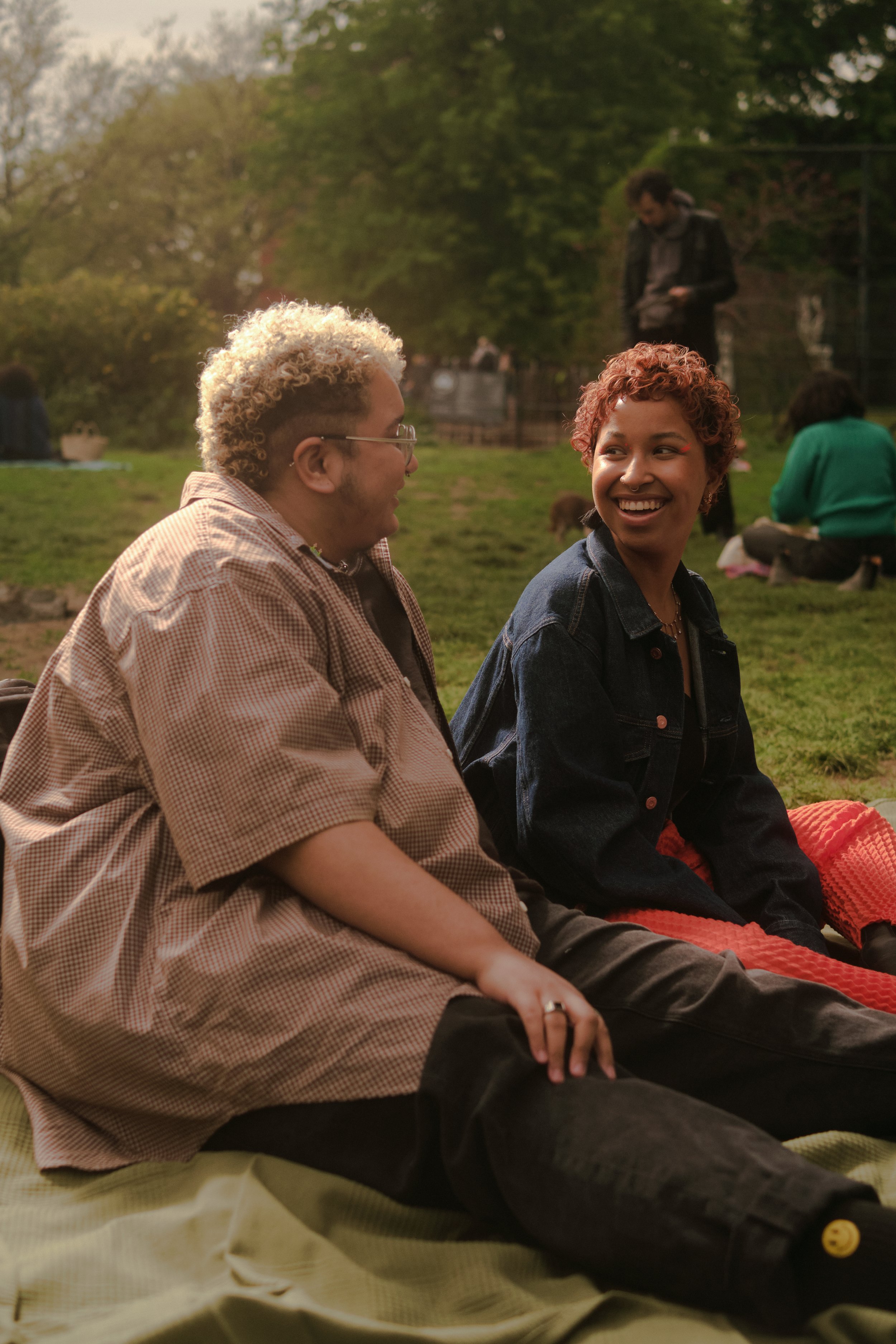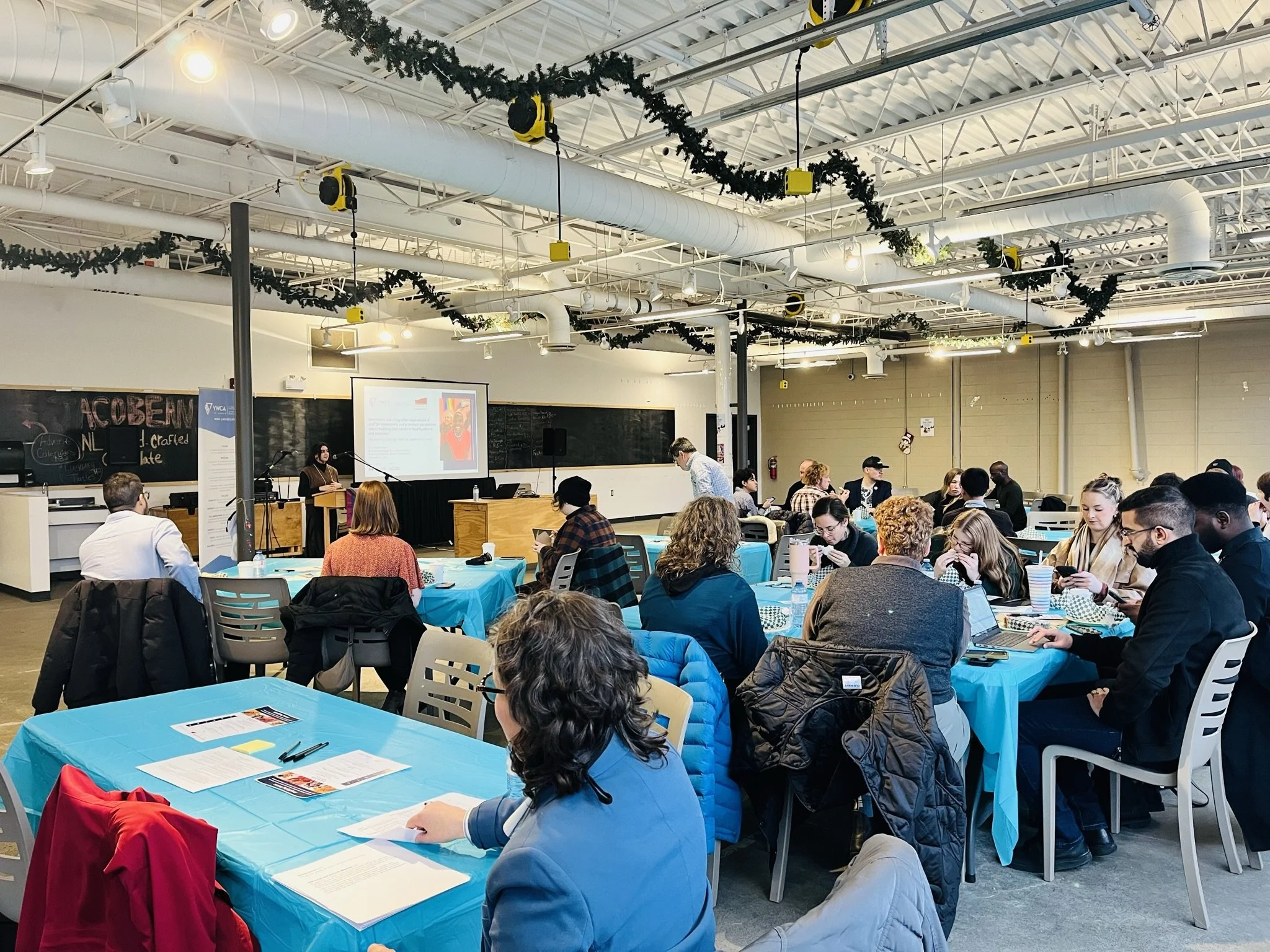Programs and Services for LGBTQIA+ Newcomers
YWCA St. John’s offers programs and services for LGBTQIA+ immigrants and refugees, ages 18+:
A peer support group, a mentorship program, and one-on-one support.
YWCA St. John's has been working to enhance the settlement experience of LGBTQIA+ newcomers in NL since 2020, recognizing a gap in community for saf(er) spaces. We work to ensure that our programs, events, and services are accessible to those with diverse gender identities and sexual orientations, varying cultural identities, and to people of all abilities. Through our LGBTQIA+ Newcomer programs we know that targeted, community-driven options make belonging, wellbeing possible through peer support, advocacy and collaboration.
Funded by Immigration, Refugees and Citizenship Canada, and the Office of Immigration and Multiculturalism (Government of Newfoundland and Labrador).
LGBTQIA+ Newcomer Peer Support Group
Our LGBTQIA+ Newcomer Peer Support Group is a confidential, non-judgmental space for participants to discuss shared experiences and support one another. The program aims to support the integration of LGBTQIA+ newcomers by providing information, guidance, and connection to others.
Meetings occur every 2 weeks. For upcoming meeting dates, click here to view our program calendar.
Click the button below to register for this program. After registering, a Newcomer Community Program Coordinator will contact you to arrange a one-on-one intake meeting.
If you need help registering or prefer to register over the phone or in person, contact kimberly@ywcastjohns.ca / 709-769-6649.
Group meetings are “hybrid”. This means participants can choose to attend in-person at YWCA’s office, or online via a video call. To ensure privacy, a confidential link to join the video call will be emailed to program registrants. Participants from across the province are welcome to join virtually!
Settle-Mates Mentorship Program
This program matches LGBTQIA+ newcomers with more established community members or long-term immigrants, to improve participant’s connection to community and social networks.
We are looking for participant mentees and volunteer mentors! Register before September 15th! Mentorship matches start on October 1st.
Questions? Contact Kimberly Offspring at kimberly@ywcastjohns.ca / 709-769-6649 or Kari Esparza-Sosa at kari@ywcastjohns.ca / 709-769-0595
One-on-One Support
This service consists of targeted on-on-one sessions to help orient LGBTQIA+ newcomers on topics that are specific to their needs, or to their local community.
We can assist with:
Settlement information
System navigation
Connecting with the 2SLGBTQIA+ community
Accompaniment and referrals to other community services
Emotional support
And more!
To request an appointment, contact our Newcomer Community Program Coordinator, Kimberly Offspring at kimberly@ywcastjohns.ca / 709-769-6649. Or, click below to select an appointment time:
Appointments are available in person or remotely by phone or video conferencing on Microsoft Teams.
Looking for more newcomer services?
YWCA St. John’s offers a variety of services for women and gender diverse individuals, including:
Women and Gender Diverse Newcomer Services - Peer support group, mentorship, and 1-1 support
Connextions - Newcomer employment Support
Connextions - Newcomer workplace English program
Past Projects
Fostering Collaboration of Services for LGBTQIA+ Newcomers in Newfoundland and Labrador
From 2020-2025, YWCA St. John’s delivered the project “Fostering Collaboration of Services for LGBTQIA+ Newcomers in Newfoundland and Labrador” in collaboration with Dr. Sulaimon Giwa of Memorial University’s School of Social Work.
The goal of this initative was to enhance services for the LGBTQIA+ newcomer community. To achieve this, we worked with partners to influence innovative program design and delivery, investigated models of service delivery experiencing success in other areas, conducted a research study on the experiences of LGBTQIA+ newcomers in NL, delivered training sessions to service providers, and developed the province’s first peer support and mentorship programs for LGBTQIA+ newcomers.
Funded by Immigration, Refugees and Citizenship Canada.
Amplifying Voices: Report on the LGBTQ+ Newcomer Research and Symposium in Newfoundland and Labrador
The “Amplifying Voices Symposium” was held on November 28th, 2023. The purpose of this event was to share the preliminary findings from the research study, “Settlement and integration experiences of LGBTQ+ newcomers and providers’ perspective about meeting their needs in Newfoundland and Labrador'' with the community.
The following report contains reflections on the symposium, as well as a summary of the preliminary research findings. This report was written by Dr. Sulaimon Giwa of Memorial University’s School of Social Work, and YWCA St. John’s.

